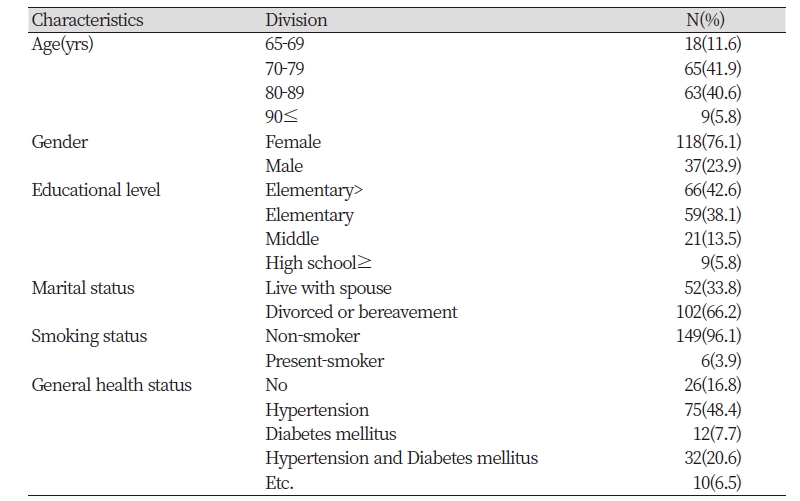Abstract
Objectives: This study was conducted to characterize the impact of cognitive function and oral health status on mastication in senior citizens, ≥65 years of age, using senior centers in the city of Wonju, South Korea. Methods: A cross-sectional study consisting of a simple oral examination and survey questionnaires was performed in 154 individuals. General characteristics, subjective masticatory function, objective masticatory function, cognitive function, and oral health status were collected as variables. Correlation and multiple linear regression analyses were conducted. A p-value of <0.05 was considered to be statistically significant. Results: The subjective masticatory function was scored using the 5-point Likert scale. When subjective masticatory function was analyzed in groups according to cognitive function, the mean subjective masticatory function scores were 4.31, 4.09, and 3.29 in the normal group (cognitive score of ≥16), suspected dementia group (cognitive score of 1215), and mild dementia group (cognitive score of ≤11), respectively. Thus, subjective masticatory function decreased along with decreasing cognitive function. When cognitive function, subjective masticatory function, and objective masticatory function were compared with indicators of oral health status (number of functional teeth, oral dryness), subjective masticatory function exhibited a significant positive correlation with objective masticatory function (r=0.635, p<0.01), cognitive function (r=0.292, p<0.01), and total number of functional teeth, including prosthetic appliances (dentures) (r=0.305, p<0.01). According to the regression analysis, age, sex, number of functional teeth, and cognitive function affected subjective masticatory function. Conclusions: The results of this study revealed that age, sex, number of functional teeth, and cognitive function affected subjective masticatory function, whereas oral dryness did not. Therefore, dental professionals must consider subjective masticatory function when providing oral care in senior patients with low cognitive function.
Figures & Tables

Table 1. The general characteristics of the subjects (N=154)


